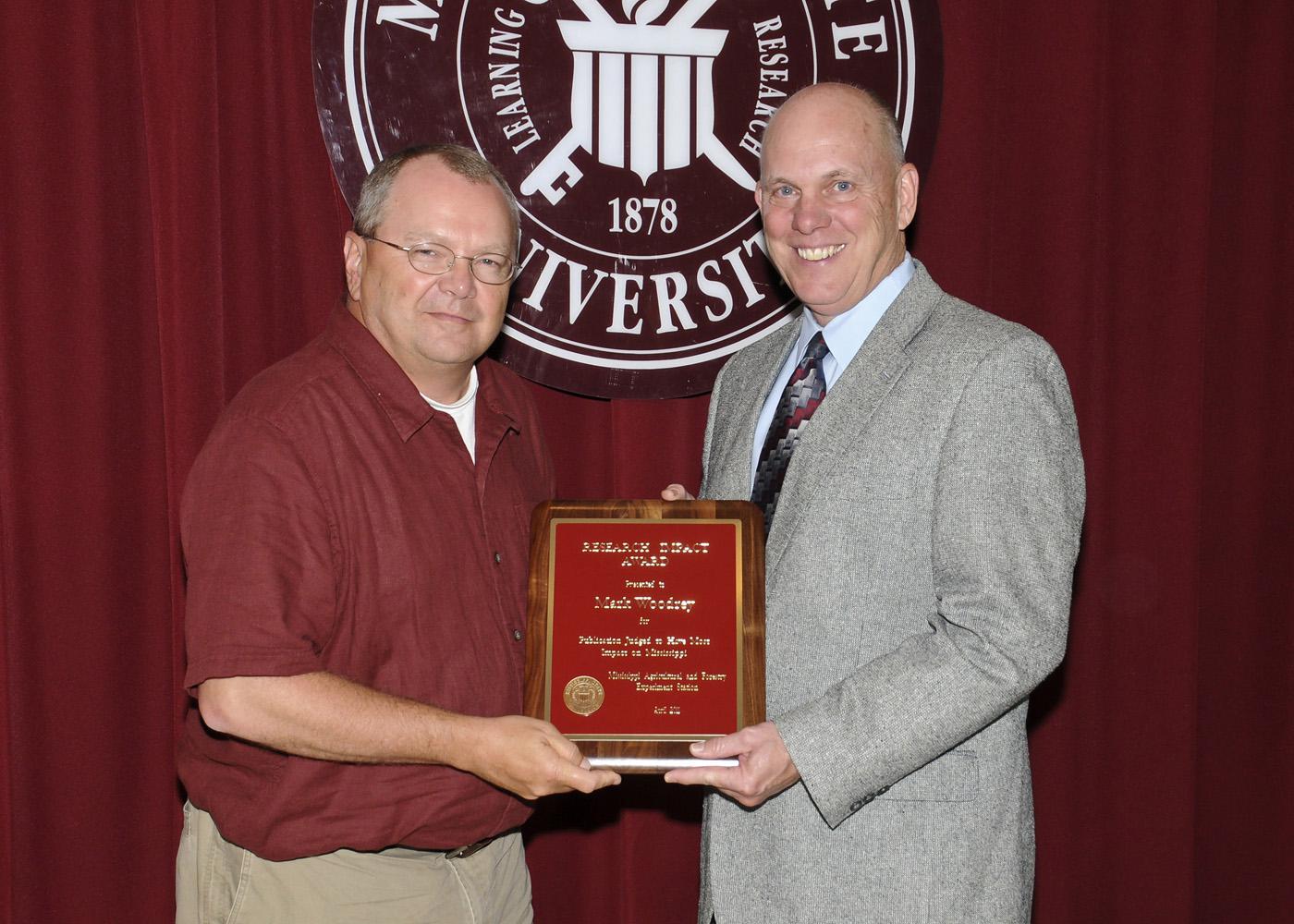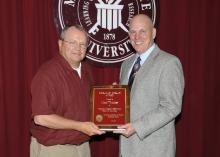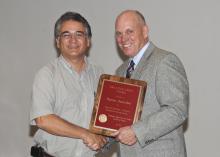Information Possibly Outdated
The information presented on this page was originally released on May 5, 2011. It may not be outdated, but please search our site for more current information. If you plan to quote or reference this information in a publication, please check with the Extension specialist or author before proceeding.
MSU faculty honored for research, contributions
MISSISSIPPI STATE -- Three Mississippi Agricultural and Forestry Experiment Station faculty members were recently recognized for their significant contributions to their fields.
Peter Ryan, Mark Woodrey and Ramon Arancibia were honored at the MAFES and Mississippi State University’s College of Agriculture and Life Sciences annual spring meeting.
Peter Ryan, MSU associate provost and animal and dairy sciences professor, received the Outstanding Scientific Publication Award for his work as a primary author on a study published in the Journal of Animal Science. The study details a procedure Ryan and his colleagues developed to monitor disease progression in pregnant mares.
The Grantsmanship Award, which is presented to the scientist who garners the most research funding from external sources, was awarded to Ramon Arancibia. Arancibia is an assistant research professor at MSU’s Pontotoc Ridge-Flatwoods Branch Experiment Station. He received nearly $1 million to develop tools for farmers to improve sweet potato production efficiency, quality and safety.
Mark Woodrey received an award for the publication having the most significant impact on the state. Woodrey is a senior research associate at MSU’s Coastal Research and Extension Center and Grand Bay National Estuarine Research Reserve coordinator. He and his colleagues examined marsh birds in Gulf Coast estuaries.
“Publications that represent a significant breakthrough and improvement of information to producers, consumers, and resource managers are eligible for recognition in this category,” said George Hopper, interim director of MAFES. “Given the challenges faced by coastal Mississippi, including Hurricane Katrina and the Deepwater Horizon oil spill, it is fitting that this year’s most relevant publication focused on the Gulf Coast.”





